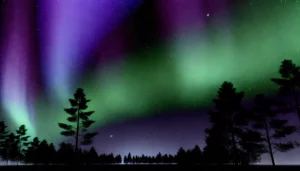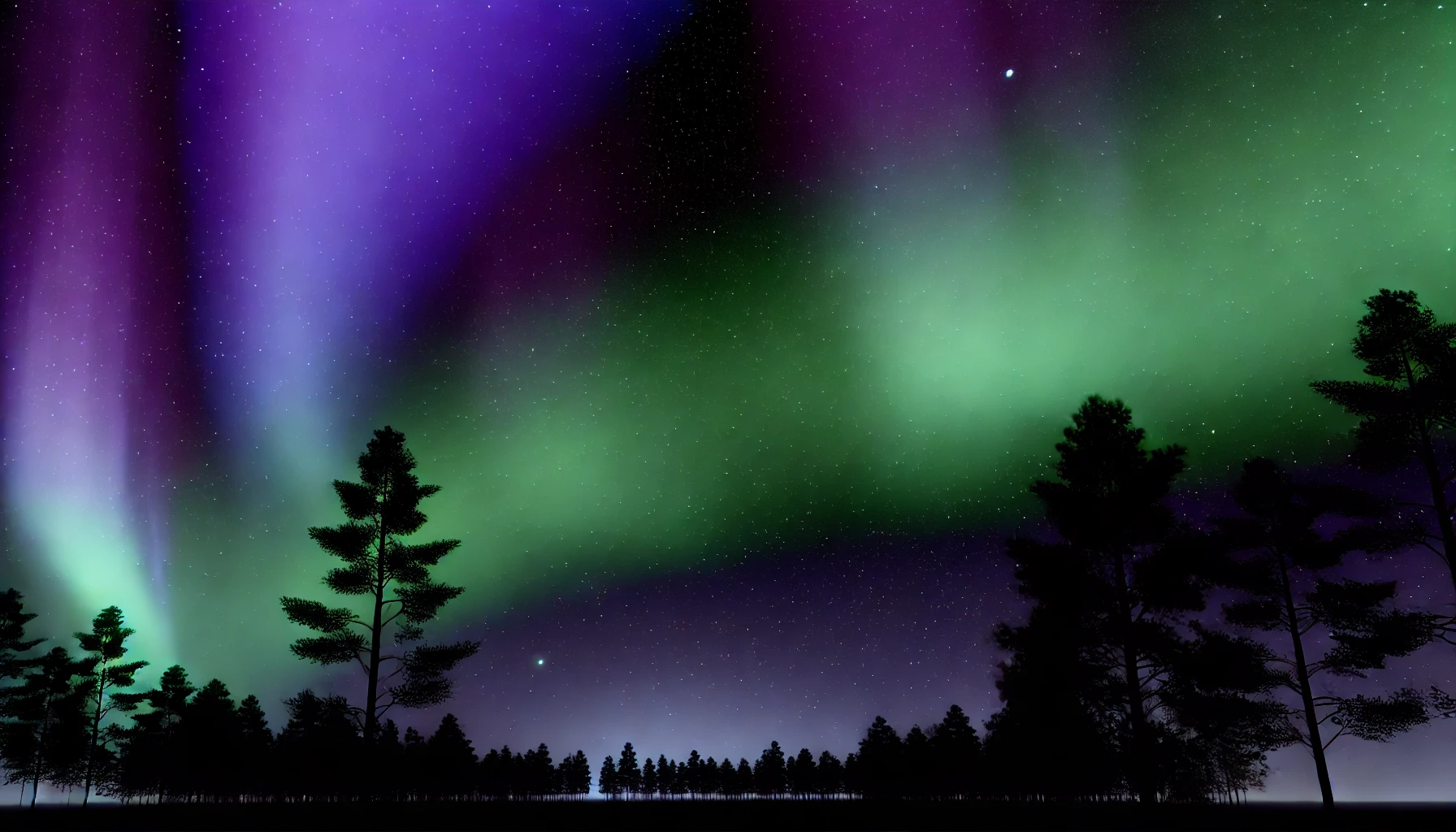Title: Northern Lights Expected Tonight Across the U.S.: A Spectacular Aurora Borealis Display
Introduction:
The Northern Lights, or Aurora Borealis, are set to put on a dazzling display across parts of the northern United States tonight, October 11, 2024, thanks to increased solar activity and a geomagnetic storm. With vivid greens and purples expected to light up the sky, this rare event could be visible as far south as Oregon and Iowa. For optimal viewing, clear and dark skies are essential. This event is part of the current solar maximum, which promises more frequent auroras over the coming months.
promises more frequent auroras over the coming months.
Why the Northern Lights Will Be Visible Tonight
The visibility of the Northern Lights tonight is directly tied to recent solar activity. A geomagnetic storm caused by a coronal mass ejection (CME) from the sun has created ideal conditions for aurora displays. According to Space.com, these CMEs interact with Earth’s magnetic field, producing the colorful lights. The Northern Lights are usually confined to areas close to the North Pole, but due to the intensity of this storm, they are expected to be seen much farther south.
Best Locations for Viewing the Aurora Borealis
If you’re located in the northern U.S., you’re in for a treat. States like Minnesota, Michigan, North Dakota, and Washington are prime spots for viewing the auroras. But thanks to the strength of this geomagnetic storm, the lights may also be visible in states as far south as Oregon and Iowa, offering a rare opportunity for people outside the usual viewing zones.
USA Today recommends that for the best viewing experience, find a location far from city lights with a clear, dark sky. Ideal conditions include low light pollution and minimal cloud cover. Northern states, where skies are more likely to be dark and clear, provide the best chance to witness the phenomenon.
The Science Behind the Northern Lights
The Aurora Borealis occurs when charged particles from the sun collide with Earth’s atmosphere. These collisions excite gases in the atmosphere, resulting in the emission of light. The color of the lights—often green, purple, or pink—depends on which gases are being excited. NASA explains that this interaction is strongest near the Earth’s magnetic poles, which is why auroras are typically only visible in far northern regions.
Viewing Tips for Tonight’s Northern Lights
For those eager to catch a glimpse of the Northern Lights, follow these tips:
- Check Local Weather: Make sure your location is clear of clouds. The Weather Channel suggests using weather apps or websites to confirm visibility in your area.
- Get Away From City Lights: Light pollution from cities can make it difficult to see the auroras. Travel to a rural or remote area for a better view.
- Look North: The auroras are usually most visible when looking towards the northern horizon, even in areas farther south.
- Be Patient: Auroras can come in waves. Even if you don’t see them right away, it’s worth waiting for the display to intensify.
The Solar Maximum and What It Means for Future Auroras
This geomagnetic storm is part of the ongoing solar maximum, a period of heightened solar activity that occurs roughly every 11 years. During this phase, the sun produces more sunspots, solar flares, and CMEs, all of which contribute to increased aurora activity. As National Geographic reports, the current solar maximum is expected to last until 2025, meaning more opportunities to witness the Northern Lights in areas that don’t typically experience them.
Space Weather Forecasts and Updates
For those hoping to catch tonight’s display, it’s essential to stay updated with space weather forecasts. Websites like SpaceWeather.com provide real-time updates on aurora activity and geomagnetic storms. By monitoring these forecasts, you can better plan your night of aurora watching.
Conclusion: Don’t Miss This Rare Northern Lights Event
With the Northern Lights potentially visible across large parts of the northern U.S. tonight, this is a rare opportunity to witness one of nature’s most stunning spectacles. Whether you’re in Oregon, Iowa, or further north, keep an eye on the sky and enjoy this awe-inspiring event, brought to you by the power of the sun and Earth’s magnetic field.











